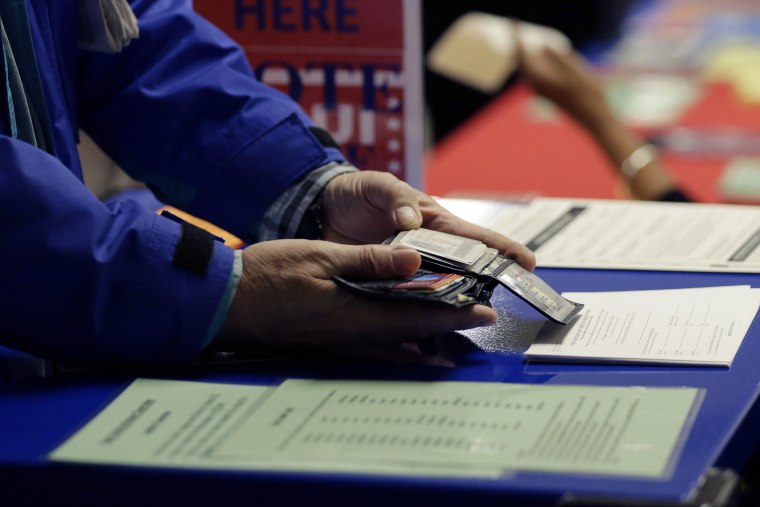Olester McGriff, an African-American man, lives in Dallas. He has voted in several Texas elections. This year when he went to the polls he was unable to vote due to the new photo ID law. Mr. McGriff had a kidney transplant and can no longer drive; his driver's license expired in 2008. He tried to get an ID twice prior to voting. In May, he visited an office in Grand Prairie and was told he could not get an ID because he was outside of Dallas County. In July, he visited an office in Irving and was told they were out of IDs and would have to come back another day. He is unable to get around easily. Mr. McGriff got to the polls during early voting because Susan McMinn, an experienced election volunteer, gave him a ride. He brought with him his expired driver's license, his birth certificate, his voter registration card, and other documentation, but none were sufficient under Texas's new photo ID requirement.
During the Obama era ... [Republicans] have passed laws requiring photo identification, forcing prospective voters who lack them, who are disproportionately Democratic and nonwhite, to undergo the extra time and inconvenience of acquiring them. They have likewise fought to reduce early voting hours on nights and weekends, thereby making it harder for wage workers and single parents, who have less flexibility at work and in their child care, to cast a ballot. The effect of all these policies is identical to a poll tax.... It imposes burdens of money and time upon prospective voters, which are more easily borne by the rich and middle-class, thereby weeding out less motivated voters. Voting restrictions are usually enacted by Republican-controlled states with close political balances, where the small reduction in turnout it produces among Democratic-leaning constituencies is potentially decisive in a close race. The simple logic of supply and demand suggests that if you raise the cost of a good, the demand for it will fall. Requiring voters to spend time and money obtaining new papers and cards as a condition of voting will axiomatically lead to fewer of them voting.
